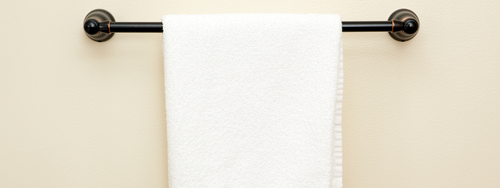Share:
In the sanctuary of our personal hygiene routines, an unlikely adversary lurks within our reach: the towels we use daily. What if these seemingly benign items could actually compromise our health? Recent studies suggest this might be the case, revealing that towels can harbor a surprising array of bacteria, fungi, and viruses. This article takes a closer look at the hidden risks associated with improper towel hygiene and offers expert-backed advice on how to mitigate these risks.
Why Should You Clean Your Towels Regularly?
Understanding the Microbial Menace
Our towels may harbor more than just water droplets from our bodies. They can be teeming with microorganisms, some of which are potentially harmful. A study conducted by researchers at the University of Arizona found that towels are among the most germ-infested objects in our homes, with coliform bacteria present in significant quantities. These findings highlight the urgent need for regular cleaning to maintain not just cleanliness but also health.
Direct Links to Health Concerns
The implications of dirty towels extend beyond mere discomfort or distaste. Skin infections, respiratory conditions, and gastrointestinal diseases can all stem from exposure to pathogen-laden towels. Pathogens such as MRSA, which can be resistant to antibiotics, can also find a haven in the fabric of towels, posing a significant risk to anyone with open wounds or compromised immune systems.
Can Moldy, Bacteria-Filled Towels Make You Sick?
The straightforward answer is a resounding yes. Dirty towels can serve as a conduit for disease, especially in environments like gyms or communal bathrooms, where they may be shared among multiple people. The risk is not limited to the visibly soiled or smelly; even towels that appear clean can be teeming with microorganisms waiting for the right conditions to proliferate.
How Often Should You Wash Your Towels?
The frequency of washing towels is a subject of much debate among experts. However, the consensus leans towards erring on the side of caution. Bath towels should ideally be washed after every three uses to prevent the accumulation of microorganisms. Kitchen towels, given their exposure to food residues, should be washed daily. Hand towels, due to their frequent use, demand the same daily attention.
How Do You Properly Clean Towels?
A Comprehensive Cleaning Guide
To effectively remove bacteria, viruses, and fungi from towels, a thorough cleaning regimen is essential:
- Pre-soaking heavily soiled towels can help in loosening dirt and neutralizing bad odors.
- Choosing the right detergent is crucial for killing pathogens. Some detergents are formulated to work at lower temperatures, while others may require hot water to be effective.
- Drying towels thoroughly after washing is just as important as the wash itself. Bacteria and fungi love moisture, so ensuring that towels are completely dry before use is essential.
Additional Tips to Prevent Bacteria Buildup on Towels
Beyond Regular Washing
- Ventilation: Proper ventilation in laundry areas and bathrooms reduces humidity levels, discouraging the growth of mold and bacteria on towels.
- Personal Towels: Assigning personal towels to each family member can help prevent the spread of germs.
- Regular Replacement: Over time, even the best-maintained towels can become breeding grounds for bacteria. Replacing towels regularly ensures that they remain safe and hygienic.
Conclusion: Embracing Towel Hygiene for Better Health
The journey towards better health begins with understanding and addressing the hidden risks in our homes. By adopting a more rigorous approach to towel hygiene, we can protect ourselves and our loved ones from potential health hazards. Let the knowledge of the risks associated with poor towel hygiene be a catalyst for change, inspiring us to maintain cleaner, healthier homes.
References
- "Microbial contamination of household and risk factors for contamination." Public Health Reports.
- "Laundry hygiene—how to get more than clean." Journal of Applied Microbiology.
- Gerba, Charles P. "Bacterial contamination of household and risk factors for contamination." University of Arizona Study.
- "Guidelines for Environmental Infection Control in Health-Care Facilities." Centers for Disease Control and Prevention (CDC).
Hilton, A.C., and Fletcher, L.A. "The bacterial contamination of towels." International Journal of Environmental Health Research.



